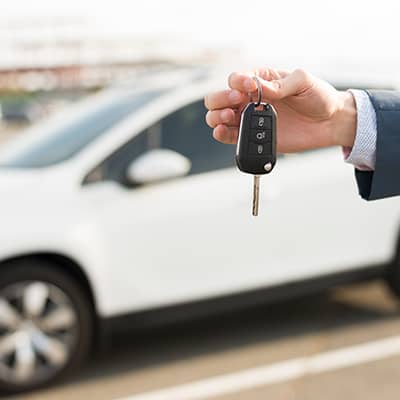Company Cars – to buy or lease?

The company – leases
The company will be the named party in the contract and is liable to make the payments to the leasing company.
The company gets tax relief on the cost of the lease and can recover 50% of the VAT on the rental charges if VAT registered.
If there is a separate maintenance cost all the VAT may be recovered.
The corporation tax relief is restricted by 15% if the car’s CO2 emissions exceed a figure prescribed by the Treasury at the start of the hire period.
- 6 April 2018 – 5 April 2021 110g/KM
- On or after 6 April 2021 50g/KM.
The Company – hire purchase or ownership
In these cases the ownership of the vehicle passes to the company and capital allowances are claimed on the purchase cost of the car.
The rate of allowance is governed by the CO2 emission figure of the car:
- Up to 50g/km 100% may be claimed (including full electric)
- 51-110g/km 18% may be claimed on a writing down basis
- Over 110g/km 6% may be claimed on a writing down basis.
There is an adjustment when you dispose of the car with sale proceeds (or market value is sold to a connected party) set against the remaining allowances available.
The company cannot recover any VAT.
The Driver
Whether you lease or buy the car, if you have any private use including normal commuting HMRC will expect to receive a P11d each year and the figure needs to be added to you tax return if you are required to file one.
The value of the benefit in kind is a percentage of the car’s manufacturer’s original list price, plus the MOLP of any optional accessories. The percentage is governed by the car’s CO2 emission value, and whether it is a petrol of diesel engine, and for electric cars by the range it can travel per charge.
You can reduce the benefit in kind by making contributions towards private use, however if you use a salary sacrifice scheme you are likely to be charged the statutory benefit in kind irrespective of the salary forgone.
Electric cars
Fully electric cars, that is not hybrids, are taxed as a benefit on the driver, at 1% of MOLP from April 2021.
A hybrid with emissions of less than 50g/km will be taxed 1-13% of the MOLP.
In addition to a capital allowance write off of 100% in the year of purchase you may also claim 100% allowances on any charging points you install.
Fuel Benefit
In addition to a benefit on the provision of the car there is also a benefit in kind if an employer provides free fuel for a company car.
Petrol and diesel are charged by reference to the car’s CO2 emissions against a flat rate for the year, which for 2021/22 is £24,600.
Currently the provision of electricity to charge an electric vehicle isn’t a benefit in kind.
Mileage claims
If you’re not providing free fuel then the employee will be entitled tax relief on the cost of business mileage, again not normal commuting.
- Own car use 45p for the first 10,000 business miles and 25p thereafter.
- Company car use Advisory Fuel Rate changes quarterly 7-18p per mile dependent on fuel type and engine capacity of the vehicle.
- Electric 4p per mile (Hybrids are regarded as petrol or diesel cars)
As an employer you may either pay these rates tax free to the employee a record of the mileage claim most be retained. If you pay less than the HMRC approved rates the employee may make a claim for relief direct to HMRC.
If you pay over the approved rates you must include the excess as a benefit in kind.
